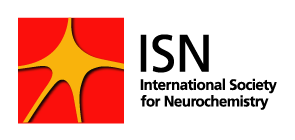Hello and welcome to this month’s newsletter! Can you relate to the statement above? If so, you are not alone. In fact, we have not met many people, independently of their career stage, who actually enjoy writing fellowships, grant proposals or applications. Its time consuming; there are many things to keep in mind; it’s often very competitive; and often the outcome will determine the next couple of years in your career. A pressure-loaded, long lasting nightmare and yet, quite literally, the bread and butter of a scientist.
So, you know us, we are not just going to spend the whole article ranting on about this issue, even though there would be a slight desire and enough material to do so. We won’t! It won’t help anyone and it won’t take away the need of doing it. Instead, we will change the angle from which we are looking at this daunting task. The main question is: why should you write a grant proposal?
1) Obviously: You need the money and it’s prestigious to secure money for your own research (never underestimate the impact of the latter).
2) It’s a bit like having your own business, giving you a strong focusand a degree of independence.
3) It allows you to continue your work, not having to adjust to some else’s line of research.
4) It gives you confidence in your work. Many experts have been through your proposal in depth and you have convinced them all, so you are on a good track. If you did not convince them, well that gives you the chance (hopefully through their feedback) to learn what to change about the way you sell your ideas or more to think more deeply about your experiments and research plans.
Did you notice something in these points? Well done, you passed the attention test! They are not exactly reflecting what it does to your career to write a grant, but what it means to get one. That is because to get a grant there is no other way than starting to apply for one. Once it is submitted the wait begins, which can be quite long and nerve-wracking. The most obvious thing is stay positive and optimistic, a well-meant piece of advice that everyone from your grandparents to your boss will give you. The more exhausting but also more practical is to keep applying for other grants. Now you have gained some practice, you can increase your chances of success. Just make sure you check the guidelines for specific requirements and differences between the grants, and be aware that if you get multiple ones for the same project, you might not be allowed to accept them all! You are allowed to accept the boost for your ego though.
A big part of getting a grant, which some people like to avoid talking about, is who you have on your side, who are your collaborators? Whom of the big names in your field could be keen to work with you? This should only be a minor part on your proposal and might at the first glance sound like a contradiction to the whole independence thing we were mentioning earlier. On the other hand it shows a lot about you as a researcher in the network and more practically it gives you an idea of whom to turn to if things don’t go as planned. Nonetheless, focus on the scientific quality of your proposal rather than just finding a big name in the field: it will be likely worthless if your proposal is not sound and clear.
We know it’s daunting and hard, particularly now when everything is insecure, chaotic and on hold. At least the first steps of informing yourself about grants, reading the guidelines and starting with the background text and plan is something that can be done from home. Every one of us has either already been through this or will have to go through it at some point. Those PIs we look up to, they have ben through this as well and don’t think that they have succeeded with every grant they have applied for. For some it might seem that this is the case, but coming back from failure is a good teacher. So what does that tell you about those particularly successful PIs?
On that note, upcoming deadlines for ISN grants, including the new Career Development Grant which is open to young researchers from any eligible country:
CAEN 1B, C and D: September 30, 2021, https://www.neurochemistry.org/educational-grants-caen/
CDG: October 31, 2021 https://www.neurochemistry.org/career-development-grant/
ITS: November 30, 2021- https://www.neurochemistry.org/international-travel-support/
Good luck and see you next month,
Your YSSC
